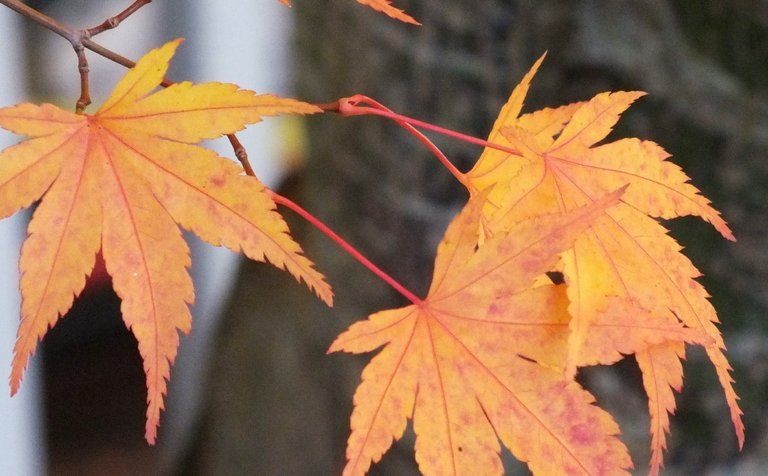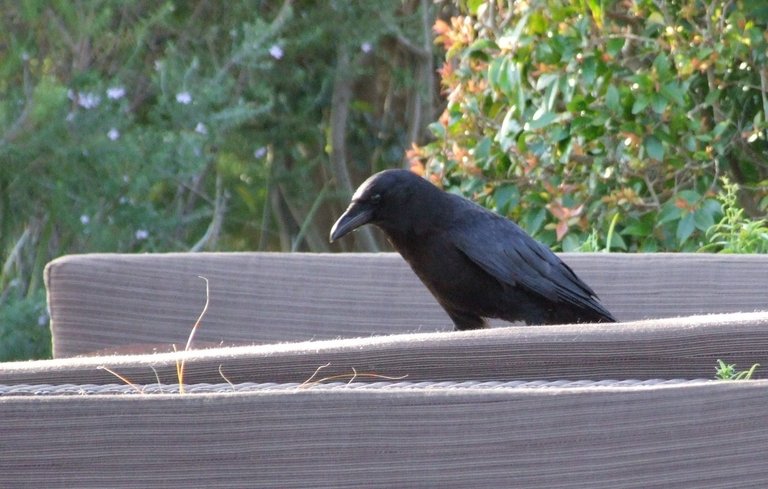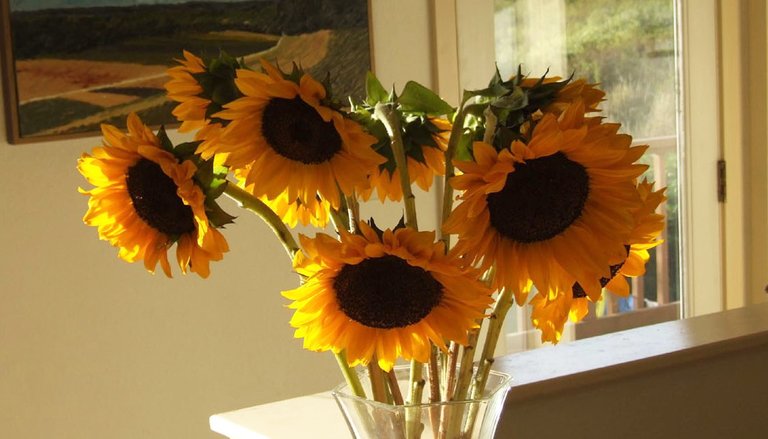The way we humans tend to "label" things has long been fascinating to me, perhaps because I have so often found myself on the receiving end of such labels.
My first actual recollection of being called "weird" dates back to my being maybe 7-8 years old in early grade school and the issue related to the fact that because my parents were much older (mom was 39 and dad 43 when I was born — as an only child — and that was seriously ancient in 1960!) than all my peers' they dressed me strangely and I had been brought up with a different sense of manners and behaviors than my friends.

That made me "weird."
Since then, I have had many an occasion to be called weird; from being in boarding school in the UK as a teenager and being the only Dane there to living in Texas during college where I was "weird" because I preferred art and literature to guns and pick-up truck engines, to some of my interests and hobbies as an adult setting me apart from the norm...
But this is not a story about my weirdness, it's an exploration of the whole thing called "WEIRD."
Why do we label things as "weird?" And why do we often associate a negative connotation with being... "non-standard?" It's a bit of a paradox, actually, because there's also a degree of admiration that often attaches to non-conformists; we call them "pioneers" and "trailblazers,"... and some people might even think along the lines of "I wish I could be more like that, but I CAN'T!"
Why not?

Conversely, why do we attach positive value to being some version of "normal," and "conformity?" Again, there's a bit of a paradox here, because most people don't actively want to be "invisible" in life, yet they embrace activities and behaviors that support some version of "blending into the crowd."
But what is "weird?" And what determines what constitutes "weird?"
Michele Gelfand is a professor of cultural psychology at the University of Maryland, and she theorizes that cultures, nations, peoples, communities and social groups fall along a scale from "tightness" to "looseness," in terms of how they consider individual behavior differences in the context of norms.
So, in a "tight" society, you're more likely to be regarded as "weird," than in a "loose" society... regardless of whether or not you actually are weird.

Which still brings us not much closer to understanding the entire idea of being weird... but one thing starts to make itself evident: Weirdness is partially about the extent to which you you are out-of-step with your immediate surroundings, and the degree to which that matters to those surroundings.
For example, a crystal-gazing New Age Hippie would be regarded as "weird" in Odessa, Texas but not particularly strange in Sedona, Arizona.
Another component of "weird" centers on our own willingness to — and comfort with — being different from the predominant crowd. Consider this: That "New Age Hippie" would arguably be perceived as more conformist in Sedona than in Odessa!

Of course, there are few arenas within which "weirdness" plays a greater role than politics.
Political affiliations — as "cultures" — tend to be almost as "tight" as the military, regardless of whether their leanings are conservative or liberal. If you don't toe the line, you're not just weird, but often unwelcome.
There's a level of polarity at play in the political arena, through which if you are not with us, you are by definition against us. Political discourse seldom tolerates neutrality.

Choices, Costs and Consequences
Choices have consequences. And most choices involve costs and tradeoffs. Back when I was in business school, the term "opportunity costs" was used a lot.
If you're an "independent spirit" who sees life through a somewhat unusual lens of perception — and stand by what you believe in — the "cost" of doing so tends to be that you experience a certain degree of judgment and disconnect from the world around you.
Either others just don't think like you, OR they find it more important to be "part of the group" than to stay true to themselves.
Personally speaking, "the group" has never served me very well, going back to being totally bored and disgusted with "popular" music, when I was a teenager.

Of course many people harbor feelings of being weird, in some fashion. Maybe you can't stand ice cream. Maybe tropical island paradises make your skin crawl. Or you have an unhealthy obsession with clowns.
These, however, tend to be singular points, rather than a total person. It takes more than a simple dislike of ice cream to be considered "weird!"
In her recent book "Weird" author Olga Khazan explores the entire concept in far more depth than I have here — in her case through the lens of perception of growing up as non-Christian Russian immigrant interested in science... in ultra-conservative, deeply religious Christian and somewhat xenophobic West Texas.
I suppose ultimately "weird" is what we make of it... and we can turn it into a burden, or we can turn it into an advantage. But it helps to first understand the dynamic of why humans seek to belong.
Thanks for reading!
Comments, feedback and other interaction is invited and welcomed! Because — after all — SOCIAL content is about interacting, right? Leave a comment-- share your experiences-- be part of the conversation!

(As usual, all text and images by the author, unless otherwise credited. This is original content, created expressly for this platform.)
Created at 20200613 18:56 PDT
0063/1290
One of the things I find disappointing on this platform - (my first real social media foray), is the love of the average , of fitting in.
(hence circle jerking and with it, the fundamental corruption of meritocracy in a 'currency'based space )
Don't listen to me, I'm weird!.lol
Personally, I like the fact that you're weird. A major part of why I got fed up with Farcebook was exactly that whole conformity issue... which was partly inspired by people simply being sheeple, and partly the result of the fear that you'd be banned, or have one of your pages shut down if you voice opinions that don't fit in with "public policy."
And Farcebook can be a bit like PROC, in that all it takes is for someone to "file a complaint" about your content and suddenly you're under the microscope.
Personally, I like the fact that you're weird.
The only people that ever say that to me, want to get me into bed...I'm worried now...
Hah! No worries, mate...
You're weird :P. Seriously though some valid points you make. Where I came from "weird" was worn like a badge of honor
It all depends, doesn't it? Where I live now, a comment like "You're so weird!" is best replied to with the words "thank you!" Which is pretty positive.
But I have also lived in places where being weird was likely to get you socially ostracized. It's all a matter of perspective.
It's comforting to sit out here with the other weird ones and chuckle about it. Conformity is stifling to creativity and evolution.
I've had a loooong Thai day of being outside everyone else's box - too much white privilege out there and not enough passion. Sat down to breathe through it and here you are, affirming that I'm fine in my individual space and choices which seem to fit with almost no one. 😆
I love the crow and relate to him enormously this evening.
Yes, conformity is not good for creativity... certainly something I have also experienced, over the years.
I am one of those non-conformists, since childhood. I don't know many people who live like I do. I expect they are out there, but they don't live near me. So I mostly keep to myself and just do what I do.... Weird, maybe, don't know, care less....
My particular brand of "weird" started bothering my own parents when I was quite young... they were conformists in so many ways, and the fact that I wasn't embracing becoming a doctor or lawyer and applying to the local country club at 17 was evidently a "strike" against them in some aspects of their social circles...
Even though I live in a very "open" place now, I tend to also keep to myself most of the time...
I was an only child and mom was 40 when I was born. They actually told her she was too old and she should consider aborting...Maybe that is why I am weird LOL. I just like what I like and do my own thing. I never cared much about fads, in fact I rather have the freedom from conforming. Like old Merle Haggard sung, I always wore "My Own Kind of Hat".